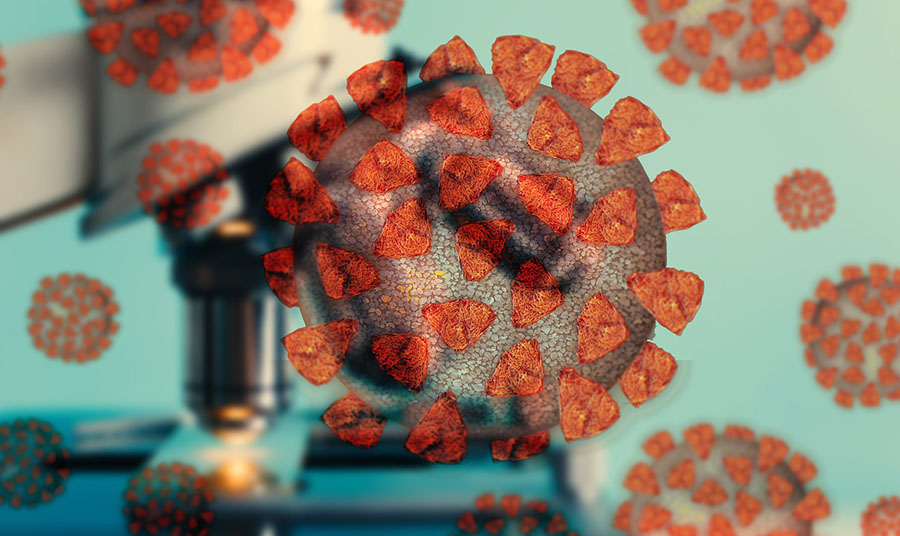The Life Sciences Report: Lee, you've been around the stem cell and regenerative medicine industry for quite a long time, and you have a special interest in the new legislation enacted by the Japanese Diet (parliament) back in November 2013. The intention of the law is to hasten clinical development of cell therapies and regenerative medicine therapies. A new cell therapy can get conditional approval in Japan for a limited time with clinical (Phase 2) data showing safety in humans. This new law goes into effect in November. Tell me your thoughts.
R. Lee Buckler: The entire industry is watching Japan and this new regulatory model with an incredible amount of interest. We're on the brink of seeing more detail around the regulations.
"Athersys Inc. is putting boots on the ground in Japan to develop a strategy there."
This initiative sets up a paradigm of conditional approval, where a company can bring an application to the Japanese regulators, and if it shows sufficient safety evidence and some evidence of efficacy, the company could get conditional approval to sell its product in the Japanese marketplace. This conditional approval would be for a seven-year window, during which the sponsor or sponsors would have an obligation to continue to file clinical data toward an eventual final market approval—a biologics license application (BLA) or the Japanese equivalent thereof. There is also some suggestion that during the seven-year window, some reimbursement will be attached to the product being sold on the market.
TLSR: In mid-September, Pluristem Therapeutics Inc. (PSTI:NASDAQ), an Israeli company, said it was going to pursue a development strategy in Japan. It hired consultants to help the company get into that market. The company's lead indications are peripheral artery disease, intermittent claudication, critical limb ischemia and muscle injury. But otherwise, I don't see a lot of other companies initiating programs in Japan. Do you see companies from the U.S., Canada or Europe getting into that regulatory environment?
RLB: I think most companies in the regenerative medicine industry have a tremendous desire to have a Japanese strategy right now. The problem is that a lot of companies in this sector don't have enough bandwidth, or capital, to execute on that.
However, a few are making Japan a high priority. Currently, less than a handful of companies have a clearly articulated Japanese strategy, and only that many again have begun executing on the opportunity.
"Mesoblast Ltd. is potentially in the pole position in Japan."
Pluristem has made the announcement about pursuing opportunities in Japan, and Chairman and CEO Zami Aberman has done an admirable job of executing deals. The company has the partnership with United Therapeutics Corp. (UTHR:NASDAQ), which is conducting a Phase 1 study of the company's PLX-PAD (full-term placenta-derived adherent stromal cells) product in pulmonary arterial hypertension, which is a fatal disease and happens to be a very large market. Pluristem also has a nice deal in place in Korea with CHA Biotech Co. Ltd. (CHA:KOSDAQ).
Going it alone all the way to market is not a good option for most cell therapy companies, and with the change in the Japanese regulation there is an appetite for regenerative medicine products in Japan that foreign companies in the sector need to capitalize on.
TLSR: You said there were a few others. Give me an overview, please.
RLB: Athersys Inc. (ATHX:NASDAQ) has announced a desire to move into Japan, and I know it is putting boots on the ground in the country to develop a strategy there. Back in January, the company announced some new Japanese patents in graft-versus-host disease (GvHD) and autoimmune diseases, such as inflammatory bowel diseases.
Cytori Therapeutics Inc. (CYTX:NASDAQ) has always had strong relationships in Japan, and has been there for a decade. It has a subsidiary in Tokyo called Cytori Therapeutics K.K.
Also, my own company, RepliCel Life Sciences Inc. (RP:TSX.V; REPCF:OTCQB), has an existing relationship with Shiseido Company Ltd. (4911:TSE), which will launch a clinical trial in Japan for pattern baldness in the next few months. This is one of the few cell therapy deals—perhaps the only one to date—that involves putting manufacturing capacity in Japan.
"The Japanese government is intentionally welcoming ex-Japan data for conditional market approval in Japan."
The company that is potentially in the pole position in Japan at the moment, however, may be Mesoblast Ltd. (MSB:ASE; MBLTY:OTCPK). The company inherited a relationship with Japan-based JCR Pharmaceuticals Co. Ltd. (4552:TKY) when, in 2013, it acquired the Prochymal (remestemcel-L or allogeneic, adult human mesenchymal stem cells) product portfolio from Osiris Therapeutics Inc. (OSIR:NASDAQ). The Osiris/JCR partnership, which was put into place a number of years ago, had been stagnant until the reemergence of the Japanese market as an important one for the regenerative medicine sector. Now Mesoblast has "regenerated" that relationship, and announced on Oct. 1 that JCR would be filing a market approval application for Prochymal in Japan for the treatment of pediatric GvHD, following similar approvals in Canada and New Zealand.
TLSR: Will a company be able to take Phase 2 data generated in the U.S. or Europe or Canada, including positive proof-of-concept and safety data, and submit that in Japan, potentially getting a seven-year conditional approval?
RLB: That's an important question. The best intelligence I have, based on interacting with people who have been working with the Japanese, including Professor Chris Mason from University College London, indicates the answer is "yes." The Japanese government is intentionally welcoming ex-Japan data for conditional market approval in Japan.
If a company gets conditional approval to market a product in Japan, it will also have to generate pivotal data outside of Japan, because no patients in Japan will want to risk being involved in a placebo trial when they have the option to buy the product in the marketplace. The end result of the paradigm is that there will continue to be data generated outside of Japan, which will be brought into Japan to support eventual final approval.
TLSR: Thank you for your time.
RLB: Many thanks to you.
[Editor's Note: Between the time this interview was scheduled and the time it was conducted, Buckler left his consultancy firm to become vice president of business and corporate development at Vancouver-based RepliCel Life Sciences Inc., a cell therapy company.]
 R. Lee Buckler, vice president of business and corporate development at RepliCel Life Sciences Inc., has been an executive in the cell therapy sector since 2000, beginning with Malachite Management in the Stem Cell Technologies group of companies. Most recently he was the managing director of Cell Therapy Group, a firm he formed in 2008 to do business development consulting for companies and organizations working in or interested in the cell therapy sector. His work included deal-targeting, transactions, market intelligence, competitive analyses, strategic assessments and market profile planning for companies ranging from top-tier multinationals to start-ups. Buckler served six years as executive director of the International Society for Cellular Therapy and just over two years as director of business development for Progenitor Cell Therapy. Buckler has a bachelor's degree in education, and a law degree. He is on the editorial advisory boards of the journal Regenerative Medicine and the BioProcess International magazine. He is also co-chair of the Alliance for Regenerative Medicine's Communications and Education Committee. He is an active industry commentator in publications and in social media and serves on numerous industry advisory boards.
R. Lee Buckler, vice president of business and corporate development at RepliCel Life Sciences Inc., has been an executive in the cell therapy sector since 2000, beginning with Malachite Management in the Stem Cell Technologies group of companies. Most recently he was the managing director of Cell Therapy Group, a firm he formed in 2008 to do business development consulting for companies and organizations working in or interested in the cell therapy sector. His work included deal-targeting, transactions, market intelligence, competitive analyses, strategic assessments and market profile planning for companies ranging from top-tier multinationals to start-ups. Buckler served six years as executive director of the International Society for Cellular Therapy and just over two years as director of business development for Progenitor Cell Therapy. Buckler has a bachelor's degree in education, and a law degree. He is on the editorial advisory boards of the journal Regenerative Medicine and the BioProcess International magazine. He is also co-chair of the Alliance for Regenerative Medicine's Communications and Education Committee. He is an active industry commentator in publications and in social media and serves on numerous industry advisory boards.
Read what other experts are saying about:
Want to read more Life Sciences Report interviews like this? Sign up for our free e-newsletter, and you'll learn when new articles have been published. To see recent interviews with industry analysts and commentators, visit our Streetwise Interviews page.
DISCLOSURE:
1) George S. Mack conducted this interview for Streetwise Reports LLC, publisher of The Gold Report, The Energy Report, The Life Sciences Report and The Mining Report, and he provides services to Streetwise Reports as an independent contractor. He owns, or his family owns, shares of the following companies mentioned in this interview: None.
2) R. Lee Buckler: I own, or my family owns, shares of the following companies mentioned in this interview: RepliCel Life Sciences Inc. I personally am, or my family is, paid by the following companies mentioned in this interview: RepliCel Life Sciences Inc. My company has a financial relationship with the following companies mentioned in this interview: None. I was not paid by Streetwise Reports for participating in this interview. Comments and opinions expressed are my own comments and opinions. I determined and had final say over which companies would be included in the interview based on my research, understanding of the sector and interview theme. I had the opportunity to review the interview for accuracy as of the date of the interview and am responsible for the content of the interview.
3) The following companies mentioned in the interview are sponsors of Streetwise Reports: RepliCel Life Sciences Inc., Athersys Inc. Mesoblast Ltd. is not affiliated with Streetwise Reports. The companies mentioned in this interview were not involved in any aspect of the interview preparation or post-interview editing so the expert could speak independently about the sector. Streetwise Reports does not accept stock in exchange for its services.
4) Interviews are edited for clarity. Streetwise Reports does not make editorial comments or change experts' statements without their consent.
5) The interview does not constitute investment advice. Each reader is encouraged to consult with his or her individual financial professional and any action a reader takes as a result of information presented here is his or her own responsibility. By opening this page, each reader accepts and agrees to Streetwise Reports' terms of use and full legal disclaimer.
6) From time to time, Streetwise Reports LLC and its directors, officers, employees or members of their families, as well as persons interviewed for articles and interviews on the site, may have a long or short position in securities mentioned. Directors, officers, employees or members of their families are prohibited from making purchases and/or sales of those securities in the open market or otherwise during the up-to-four-week interval from the time of the interview until after it publishes.



























































